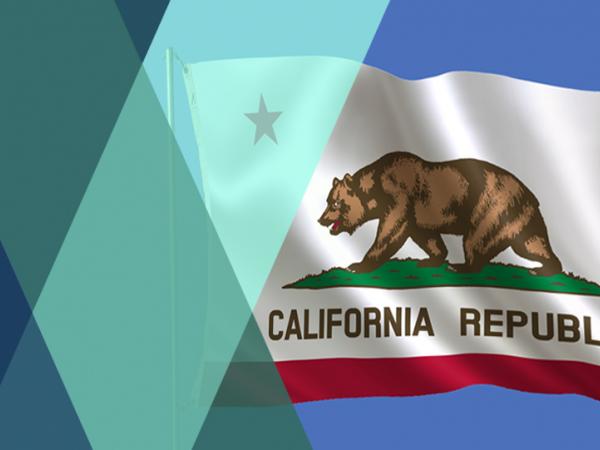
Privacy & Cybersecurity
Viewpoints
Filter by:
NYDFS Issues New Guidance Regarding COVID-19 Cybersecurity Risks
April 20, 2020 | Blog | By Cynthia Larose, Christopher Buontempo
The New York Department of Financial Services (“NYDFS”) recently issued new guidance to regulated entities regarding cybersecurity awareness during the COVID-19 pandemic - citing a significant increase in cybercrime and criminals seeking to exploit the pandemic.
Read more
New Feature: Mintz Privacy Professionals in the News
April 14, 2020 | Blog | By Cynthia Larose
The Mintz Privacy team has been tracking privacy issues related to COVID-19. We have been featured in various publications talking about cybersecurity risks, GDPR regulations, the California Consumer Privacy Act, and more.
Read more
“When You Promise Security, You Need to Deliver Security”
April 13, 2020 | Blog | By Christopher Buontempo
If your company is marketing any smart device, particularly if the device is involved with home security and collects personal information from users, it’s time to pay attention to the story of Tapplock. Tapplock, Inc. (“Tapplock”), is a Canadian Internet of Things (“IoT”) company that sells fingerprint-enabled padlocks that are connected to the Internet (“smart locks”).
Read more
U.S. Senate Explores Use of Big Data To Fight COVID-19
April 10, 2020 | Blog
We recently provided some insights regarding how countries across the world are using data to fight COVID-19. The United States Senate, Committee on Commerce, Science, and Transportation, has recently conducted a hearing with witnesses from academia, industry, and interested organizations on “Enlisting Big Data in the Fight Against Coronavirus.”
Read more
COVID-19 Related Cyber Threats: Joint Security Alert from US Homeland Security/UK National Cyber Security Centre
April 9, 2020 | Blog | By Cynthia Larose
The US Cybersecurity and Infrastructure Security Agency (CISA) of the Department of Homeland Security has issued a rare joint alert with the UK’s National Cyber Security Centre (NCSC) regarding coronavirus-related threats. The alert warns that cybercriminals and nation -state hackers are trying to take advantage of the pandemic for criminal gain.
Read more
Zoom Lessons Learned: Vendor Privacy and Security Risks during COVID-19
April 2, 2020 | Blog | By Cynthia Larose, Christopher Buontempo
The COVID-19 pandemic and resulting office shutdowns has required many organizations to quickly transition to remote working environments. Going remote often requires a number of technology solutions and tools such as video conferencing, email, cloud file storage, file sharing, chat and communication platforms, and remote desktop applications, just to name a few.
Read more
New York Dept of Financial Services (NYDFS) Extends Cybersecurity Compliance Deadline
March 31, 2020 | Blog | By Cynthia Larose
The NYDFS has announced that it has extended the deadline for compliance with certain cybersecurity requirements due to the coronavirus emergency. The announcement from the Superintendent of Financial Services of the State of New York recognizes that COVID-19 may present compliance challenges for regulated entities and covered persons in meeting reporting obligations.
Read more
From Adventure Academy to Zoom: How to Select Educational Apps that Safeguard your Child’s Personal Data in the Era of At Home Learning
March 30, 2020 | Blog
K-12 schools, colleges, and universities around the country have shuttered their doors—most, for the rest of the academic school year—in response to the COVID-19 pandemic. Educational institutions are in uncharted waters, but most are rising to the occasion to provide engaging and robust online curricula to keep students educated and entertained.
Read more
Webinar - COVID-19: Managing Privacy & Cybersecurity Risks (Monday, March 30)
March 27, 2020 | Blog | By Cynthia Larose
The COVID-19 global pandemic presents unique legal and practical challenges for companies across all industries, including with respect to privacy and cybersecurity risks and protections. Join Mintz, ML Strategies, and one of our industry partners, The Crypsis Group, for a webinar addressing these critical issues and the dynamic and evolving cybersecurity threats.
Read more
COVID-19 Will Apparently Not Delay CCPA Enforcement
March 26, 2020 | Blog
While many companies around the world are coping with a global pandemic, some are facing additional challenges in light of a looming deadline triggered by the California Consumer Privacy Act (“CCPA”). Citing #covid19 concerns, a coalition of more than 60 such companies made a plea this week to California’s Attorney General Xavier Becerra (“AG”) to delay the AG’s enforcement of the CCPA.
Read more
First-Ever CCPA Cause of Action Filed in a Federal Court, but Is This Class Claim Short-Lived?
March 25, 2020 | Blog | By Cynthia Larose
Although it may not seem like it, there are privacy-related issues to discuss beyond COVID-19. Before the state of emergency, we saw the first complaint under the California Consumer Privacy Act (CCPA) filed in a California federal court. This action, styled as Fuentes v. Sunshine Behavioral Health Group, LLC, Case No. 8:20-cv-00487 (C.D. Cal. March 10, 2020)[LINK TO PDF], arose from a data breach, which allegedly exposed highly sensitive personal and medical information of thousands of patients of Sunshine Behavioral Health Group (“Sunshine”).
Read more
Privacy In The Time of COVID-19: Engendering Customer Trust When Governments Ask For Smartphone And Other Data To Track Virus Activity
March 24, 2020 | Blog
With the advent of COVID-19, countries around the world are facing a novel challenge that affects them in unprecedented ways economically, socially, and otherwise. From a public health perspective, now perhaps more than ever before, authorities are interested in understanding more about the movement patterns of those within their borders, including where certain individuals have traveled to, who they have met with, and where they are located now.
Read more
Coronavirus and Data Protection in the Workplace: The EDPB provides key guidance for companies with employees in Europe
March 23, 2020 | Blog
Companies with employees in multiple European locations may well be feeling challenged both in keeping up with public health-driven guidance – and more recently, mandates – relating to the SARS-COV2 risks in the workplace. On top of extraordinarily urgent efforts to limit the spread of the novel coronavirus while maintaining as much business continuity as possible, companies have legitimate concerns about their data protection obligations under the General Data Protection Regulation (GDPR) and national employment laws.
Read more
FINRA Warns Member Firms of COVID-19 Related Cybersecurity Risks
March 18, 2020 | Blog | By Cynthia Larose
The Financial Industry Regulatory Authority (FINRA), the independent nongovernmental organization that writes and enforces the rules governing U.S. registered brokers and broker-dealers, has issued guidance to its member firms regarding pandemic-related planning.
Read more
New York Demands Coronavirus Emergency Plan from Crypto Firms by April 9th and Adds Requirements for Boards and CEOs
March 17, 2020 | Blog | By Cynthia Larose
The New York Department of Financial Services (NYDFS) issued guidance to financial institutions engaged in virtual currency business activities, mandating that an emergency preparedness plan from each firm be submitted to NYDFS within 30 days from March 10, 2020. The agency also outlined the respective responsibilities of the boards of directors, senior management, and CEOs (or their equivalents).
Read more
Coronavirus (COVID-19): Managing Cyber Security Risks of Remote Work
March 13, 2020 | Blog | By Christopher Buontempo, Cynthia Larose
With cases of the Novel Coronavirus (COVID-19) emerging in nearly every state, many businesses are taking swift action in an effort to curb its spread. Teleworking, “remote working,” or simply “working from home,” is a centerpiece of those efforts. While remote working arrangements may be effective to slow the community spread of COVID-19 from person to person, they present cybersecurity challenges that can be different than on-premise work.
Read more
Beware the Coronavirus Email Scams
March 6, 2020 | Blog | By Cynthia Larose
COVID-19 is not the only virus associated with the global outbreak. As predictably as night follows day, cybercriminals have been using the epidemic as a means to spread their malicious payloads. Companies should include information about cyber hygiene along with the CDC recommendations of hand washing, particularly given the potential for increased remote access to corporate IT systems.
Read more
Analysis of Modified Attorney General Regulations to CCPA – Part 5: Discriminatory Practices and Financial Incentives
February 21, 2020 | Blog | By Cynthia Larose
Wrapping up our multi-part series on the recent revisions to the CCPA draft regulations issued earlier this month by the California Attorney General’s office, we look at Article 6 pertaining to non-discrimination and financial incentives.
Read more
Health Care Data Breaches Are Increasing Both in Number and Cost
February 20, 2020 | Blog
It feels like we’ve been seeing a lot more health care breaches caused by hackers and other IT security incidents recently, and there’s a good reason why: a recent report by cloud security company Bitglass confirms that both the number of breaches and individuals affected by breaches caused by hackers and IT incidents grew significantly last year. Bitglass analyzed data from the breach portal, affectionately known as the “Wall of Shame,” published by the U.S. Department of Health and Human Services (HHS) Office for Civil Rights (OCR). Pursuant to the HITECH Act, HHS is required to post a list of all reported breaches that affect 500 or more individuals. OCR classifies the types of breaches reported on the Wall of Shame, and the "Hacking/IT Incident" category includes a variety of breaches, including malicious intrusion, malware, ransomware, phishing, and general IT security failures.
Read more
Analysis of Modified Attorney General Regulations to CCPA – Part 4: Special Rules for Minors
February 20, 2020 | Blog | By Cynthia Larose
In this post, we offer insights on the revisions recently made by the California Attorney General’s office to Article 5 of its draft regulations pertaining to special rules regarding minors. Article 5 imposes special requirements on businesses that sell the personal information of children and minors. We previously reported on this part of the draft regulations.
Read more
Explore Other Viewpoints:
- Data Centers & Digital Infrastructure
- AI: The Washington Report
- Antitrust and Federal Regulation
- Appellate
- Arbitration, Mediation & Alternate Dispute Resolution
- Artificial Intelligence
- Awards
- Bankruptcy & Restructuring
- California Land Use
- Cannabis
- Class Action
- Complex Commercial Litigation
- Construction
- Consumer Product Safety
- Corporate Governance (ESG)
- Cross-Border Asset Recovery
- DEI Legal Developments
- Debt Financing
- Direct Investing (M&A)
- Diversity
- EB-5 Financing
- Education & Nonprofits
- Employment
- EnforceMintz
- Environmental (ESG)
- Environmental Enforcement Defense
- Environmental Law
- Environmental, Social, and Corporate Governance (ESG)
- FDA Regulatory
- FDA in Flux
- False Claims Act
- Federal Circuit Appeals
- Financial Institution Litigation
- Government Law
- Growth Equity
- Health Care
- Health Care Compliance, Fraud and Abuse, & Regulatory Counseling
- Health Care Enforcement & Investigations
- Health Care Transactions
- Health Information Privacy & Security
- IP Due Diligence
- IPRs & Other Post Grant Proceedings
- Immigration
- Impacts of a New US Administration
- Insolvency & Creditor Rights Litigation
- Institutional Investor Class Action Recovery
- Insurance & Financial Services
- Insurance Consulting & Risk Management
- Insurance and Reinsurance Problem-Solving & Dispute Resolution
- Intellectual Property
- Investment Funds
- Israel
- Licensing & Technology Transactions
- Life Sciences
- Litigation & Investigations
- M&A Litigation
- ML Strategies
- Managed Care
- Medicare, Medicaid and Commercial Coverage & Reimbursement
- Mergers & Acquisitions
- Patent Litigation
- Patent Prosecution & Strategic Counseling
- Pharmacy Benefits and PBM Contracting
- Portfolio Companies
- Privacy & Cybersecurity
- Private Client
- Private Equity
- Pro Bono
- Probate & Fiduciary Litigation
- Products Liability & Complex Tort
- Projects & Infrastructure
- Public Finance
- Real Estate Litigation
- Real Estate Transactions
- Real Estate, Construction & Infrastructure
- Retail & Consumer Products
- Securities & Capital Markets
- Securities Litigation
- Social (ESG)
- Special Purpose Acquisition Company (SPACs)
- Sports & Entertainment
- State Attorneys General
- Strategic IP Monetization & Licensing
- Sustainable Energy & Infrastructure
- Tax
- Technology
- Technology, Communications & Media
- Technology, Communications & Media Litigation
- Trade Secrets
- Trademark & Copyright
- Trademark Litigation
- Unified Patent Court (UPC)
- Value-Based Care
- Venture Capital & Emerging Companies
- White Collar Defense & Government Investigations
- Women's Health and Technology





